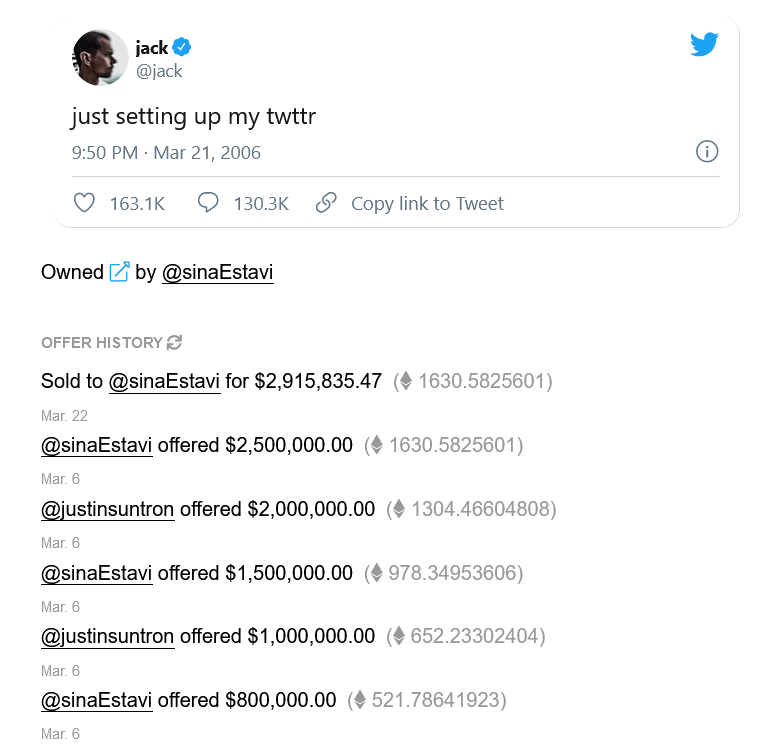Twitter’s Jack Dorsey auctions first-ever tweet for $2.9 million

Twitter CEO Jack Dorsey has netted $2.9 million from selling the first-ever published tweet as a non-fungible token (NFT).
As reported by BTC PEERS, Dorsey offered to sell the tweet as an NFT on March 6. He minted the tweet using Cent, an Ethereum-based service that enables users to mint, bid on, and sell NFTs of tweets.
The tweet, which was published on March 21, 2006, reads “just setting up my twttr.”
Speaking of the winning bid, an investor with the handle @sinaEstavi has paid over $2.9 million for the tweet. Interestingly, the starting bid was a mere $1. Between March 6 and March 22, there was stiff competition between Justin Sun of Tron and @sinaEstavi. However, the latter won the bid.

Dorsey had earlier revealed that he was going to donate all the proceeds of the auction to GiveDirectly. The non-profit organization sends cash directly to families living in extreme poverty.
Judging by the movement of the funds, it appears Dorsey immediately transferred the proceeds from the sales to crypto exchange Kraken.




